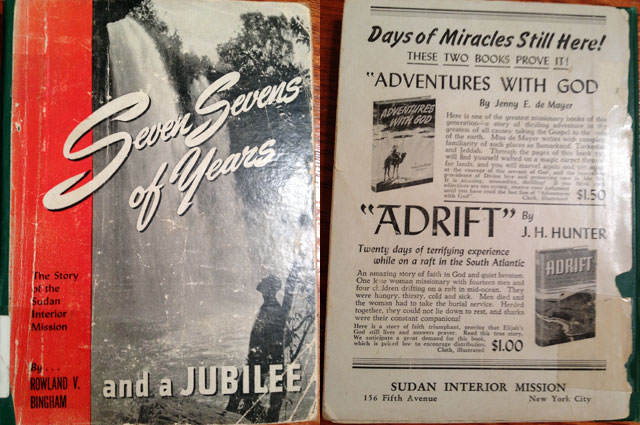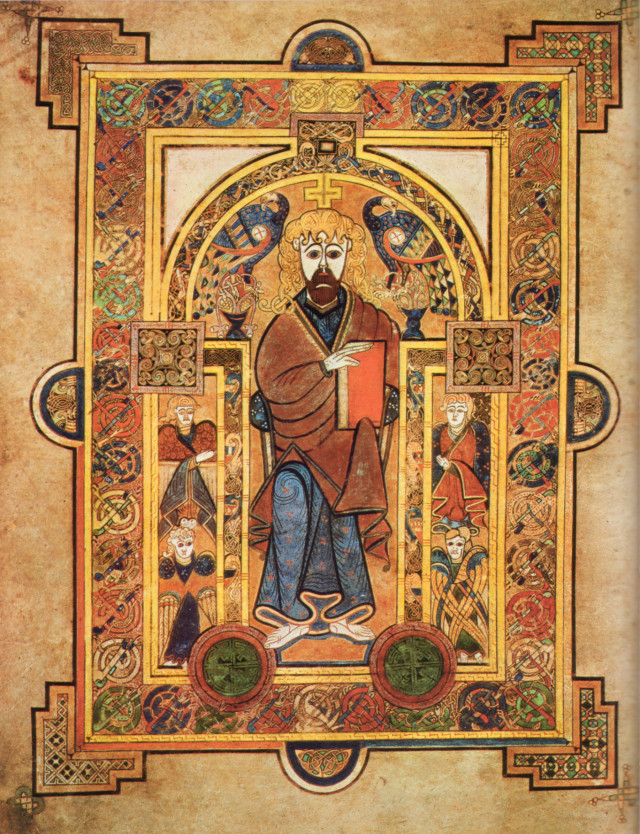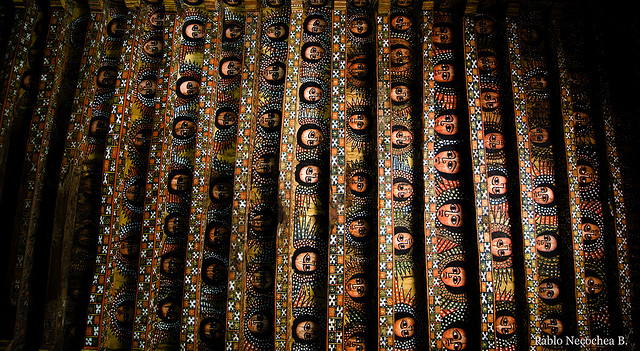My wife and I have had discussions lately on the topic theology and disability. It a topic that is, I believe, more important than you might think and one that has certainly been neglected by most or perhaps all of the best Christian thinkers.
One person that has written about it is John M. Hull, an English theologian who went blind in the middle of his life. We aim to read through a collection of essays he wrote related to disability and Christianity and try to comment on and further develop his ideas a bit. We decided this would be the best venue to post them at.
This is the first round. Please read the original essay, The Broken Body in a Broken World: A Contribution to a Christian Doctrine of the Person from a Disabled Point of View.
Our comments, with minimal editing, are as follows:
—–
Whistler:
I am initially put off just by the title. The word “broken” implies the kind of negative connotations I am trying to reject. While I appreciate that the Fall has created a reality of brokenness, and also that the broken Body of Christ is celebrated, and not scorned, my search lately has been to discover whether a legitimate, orthodox theology of disability can support a view of disability in which the condition and experiences of the disabled person is different than that of the comparable able-bodied person but not inferior or negative in any way.
This is important for a philosophy and a theology of disability because it enables us to postulate the existence of several worlds of human knowledge. The experience which a blind person has of the world is so significantly different from that of sighted people that we can speak of it as a constructed world. This emphasizes the independence and integrity, the wholeness of the blind world, and sets blindness free from being interpreted merely in terms of deficiency. Blindness is not just something that happens to ones eyes; it is something that happens to ones world. This enables us to also relativise the hegemenous assumptions of many sighted people, who do not always realise that they live in a world which is a projection of their sighted bodies, but make the mistake of thinking that the world is just like that, the way they see it. Such people are never able to respect or understand blind people, but will always regard them as being merely excluded from the sighted world, and not as having a more or less independent world of their own.
As far as we are concerned, these controversies are long since dead, but a significant point remains, and one which is hardly ever commented on in the interests of a theology of disability; the Man who stands at God’s right hand is imperfect. The broken body on earth corresponds to the broken body in heaven. Moreover, the broken body on earth is to be found not only in the eucharist, or the Lord’s Supper, but also in the church, which is the broken body of Christ, and in the broken body of suffering humanity. When people are hungry or thirsty, or naked, or sick, or in prison, it is Christ who suffers these things, and because only a body can suffer thirst, hunger, nakedness, illness and imprisonment, it is not the Spirit but the body of Christ that suffers (Matt. 25:31-46).
Several points in Hull’s essay have caught my attention. The first is choosing to deal primarily with the theology of the body as a direct contrast to Imago Dei.
I fail to understand why these two concepts must be mutually exclusive. Hull goes on to conclude later on in his essay that Jesus exists corporeally in heaven at the right hand of the Father, and yet Jesus is consummately in the image of God. He is God. The scars and wound (what Hulls refers to as the “brokenness”) did not alter the image of God or remove Christ from the Trinity. If Christ is still a member of the trinity, but the corporeal body bears the imperfections and scars even in heaven, then bodily imperfection therefore must not reflect on the perfect Imago Dei that Christ still shares.
I suggest that the “Kingdom of God is within” idea solves this dilemma in that the Kingdom of God does not rely on the state of our physical bodies. This, of course, directly denies Hull’s theology of the Body, but to me better addresses the dichotomy of the problem of imperfection and Imago Dei.
The next point that caught my attention is the idea of the High Priest who understands our weaknesses. Of course, the Old Testament priests had to be physically perfect, and specific guidelines were written about certain disabilities that would remove the eligibility of a man from serving as high priest. Still, if Jesus exists in heaven with the scars and imperfections now, and yet can serve in the role of High Priest, does this speak to a certain perfecting of imperfections or sanctifying of brokenness that results in requalification for service?
Hull briefly addresses the role of the disabled Christian within the Body of Christ: specifically that the awareness of the body, the empathy and compassion that the disabled naturally develop needs to exist within the church, and is an integral part of the Body of Christ.
While this is observably true, I would argue that this barely scratches the surface of the possible roles God might have in mind for the disabled within the larger Body of Christ. It would seem to me to be merely a poor start, as it is once again focused only on the negative, the experience of suffering and neediness that give the disabled such a one-dimensional persona to society in general, and the Church in particular.
To extend this, I’d like to bring a reminder that the disability that society so scorns often creates opportunities within the lived experience of the disabled person to develop skills that otherwise would likely stay latent. Fanny Crosby might have written 6,000 hymn had she not been blinded as a young child, but without the experience of learning orally, of having her grandmother read the Bible aloud to her until she had entire books of it memorized, and the time to compose verse due to a lack of other stimulation and activity, I highly doubt she would have been so prolific.
Beethoven might have written the Ninth symphony had he not been deaf, but the social isolation and introspection he experienced may have contributed to the intense power we find in the Ninth. Such speculation is impossible to prove, of course, but the contributions of people who have disabilities should never be limited to compassion for others or inspiration of the non-disabled, as nice as these things are. To really acknowledge the disabled as equally contributing members of the Church, their positive accomplishments need to be lauded, and not just as exclamations of shock or sentimental anecdotes of “overcoming.”
—–
“due to the persistent tendency to infer inner sinful states from outer imperfections”
Yes, this is a problem, but not actually the actual case, just a tendency.
We are the image of God, but we do should not reinvent him in our image.
I still think, if phrased properly, the image of God can still be an OK starting point. I think most of the intuitive implications from this though are indeed problematic (God as perfect body, perfect intellect, etc.) and considering disabled people does a good job of bringing these problems to light.
With Dorothy Sayers, I would tend to emphasize the image of God being some sort of creative energy, something still observable in even some of the most mentally disabled.
Agree on physical disability, mental disability, and sensory disability being essentially the same thing, with the possible exception of some of what we in the modern secular west call psychological disorders. Some of these are better described as simply sin or the work of demons. The man who does not fear God begins with the assumption that neither of these exist, but we should not and no saint or writer of scripture thought anything of the sort.
Social aspect most alienating. Yes.
I like the “relative disability” thing on walking to get water in Africa. This is what I’m always sayin’. We are ALL disabled in some sense, to varying degrees and from various standpoints. It’s not an either/or.
Be careful treating everything as a construction inside someone’s head creating new worlds. This is a common technique to ignore nature and especially scripture. Empathy does not require multiple universes, but one.
Baggage muddies the waters of our understanding. For example, the fact that most blind people live in poverty makes blind people seem more different than they really are. They share many things with wealthy blind people, but much they do not. Don’t confuse the two. This is a good point.
Careful saying the economics is unnatural. That’s probably too big a bite to chew.
I would qualify it as being largely contrived and unjust, but not necessarily wholly unnatural.
Some examples of disabilities in scripture…
- Jacob limped because he fought with God. This isn’t presented a bad thing.
- Moses had a speech impediment, but this was not presented as a substantial problem.
- Paul was blinded on the road to Damascus, but it was simply to get his attention.
“Your Best Life Now” self-help “You can do it!” theology is poison to disabled people. (And everyone else for that matter.)
Christianity is not part of the problem, but one of THE major forces in history that does advocate for disabled people. Marxist China euthanizes them. So did Pagan Rome. India relegated them to an established bottom class, and African tribal people largely neglected them. Christians, and ONLY Christians started nudging and pushing things toward anything even close to what we have today. So some people are angry at Christians that oppressed them. So what. That is short sighted. The big picture says otherwise.
Gosh my heart is warmed when I read a blast of scripture. It’s like someone opening a window and the cool oxygen-infused breeze rushes in! Then back to the stifling ivory tower.
I totally dig his study on the breaking of bread and how often it appears. Especially about how the two disciples on the road to Emmaus. “he had been made known to them in the breaking of the bread”.
The body that stands at the right hand of God is imperfect, but in some sense, fully fulfilled in it’s brokenness. But it is also incorruptible.
I agree that unambiguous perfection is an “oppressive monolith”. It’s like the weight of the law. But Jesus is always keeping the law intact while blowing it to bits with a love that comes crashing through it like a train through a paper barrier.
The image of God, and Man in Eden is not the same as “the images of perfection which are found in our present culture”.
Footnotes: Disappointed that he didn’t mention Pope John Paul II’s “A Theology of the Body”, which is a MAJOR work on this topic. It’s a Catholic thing though and might not be on his immediate reading list. It’s impossible that he hasn’t heard of it though.
Article got better as it went along.
In the end I agree with his conclusions.
I think the adjustment I would make is that I think the traditional perfect Eden and perfect eschatology view can be clarified and amended to reject modern ideas of “perfection” and still stay intact. I don’t think they must be tossed entirely. They are important for other things.
—–
Whistler:
Regarding our “perfected bodies” in heaven, where do we get the supposed standard of perfection that God plans to give us in our heavenly bodies? Matt mentioned a Ken doll, and while it made me laugh, what IS a perfected body? Is it a certain height? Certain musculature? Certain hair or skin color? Will someone with dwarfism be taller and have a “normal” body? How about a person who is proportioned in more of a typical manner, but who is as short as a person with dwarfism? Will the body with dwarfism change, but the person who is merely short stay the same? How about IQ? Will we all be geniuses?
I still wonder if more of our difference are deliberate by God than we realize, and my in fact be a perfection just as they are.
—–
CoffeeMatt:
When you start asking questions about what our redeemed bodies will look like, then some of these things fall apart. It is conjecture of course, but one that can bring out where you stand on a lot of things and challenge them. Will a dwarf person still be incredibly short in the new Jerusalem? Will he stay short? Will he begin to grow? Will a blind person be instantly seeing? Will they grow to see over a 100 years? Will then stay blind but not actually care anymore? A person who died of cancer will no longer have that, but what WILL they have? Do you come back as a 20-year old? 40-year old? What happens to all the aborted babies? Do they get to be born and then grow up as children? I’m afraid that we can’t go very far down this road without just making things up. It’s tempting but probably best to do our best with the information we have a clearer picture of.





